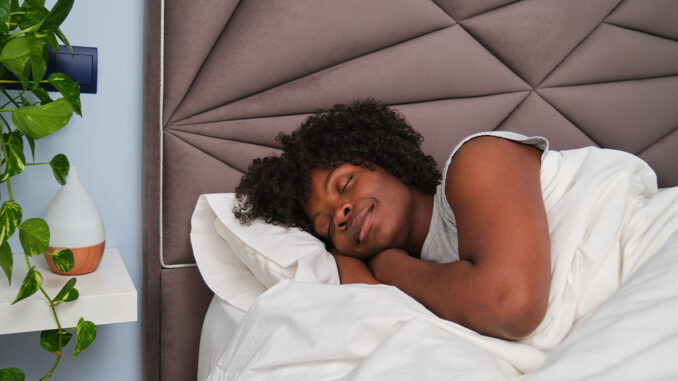
By Stacy M. Brown | Black Press USA Senior National Correspondent |Americans may be spending more time asleep, but new research shows that quality sleep remains out of reach for millions.
A ValuePenguin analysis released this month found that U.S. adults now average nine hours of sleep per day, up from eight hours and 28 minutes two decades ago. That adds up to more than eight extra days of sleep each year. Older adults and women tend to rest the longest, with those 65 and older averaging nine hours and nine minutes daily. Nebraska residents sleep the most at nearly 10 hours a day, while North Dakotans sleep the least at just over eight hours. But the National Sleep Foundation (NSF) warns that more time in bed doesn’t mean better rest. The 2025 Sleep in America Poll found that six in ten adults don’t get the recommended seven to nine hours of quality sleep each night, and nearly four in ten struggle to fall asleep at least three nights a week. Almost half wake up often during the night.
The same study revealed that adults with good sleep satisfaction are nearly twice as likely to flourish in life compared to those dissatisfied with their sleep. “Poor sleep health is a major risk factor for lower well-being across multiple areas of life,” said Dr. Joseph Dzierzewski, the NSF’s senior vice president of research. “Prioritizing sleep health can improve mental health, workplace efficiency, and stronger personal relationships.” A related National Sleep Foundation report found that 88 percent of adults who are satisfied with their sleep are thriving in areas like happiness, productivity, goal achievement, and social connections. Fewer than half of those with poor sleep satisfaction experience the same well-being.
Meanwhile, an earlier study published in JAMA Network Open warned that irregular sleep patterns — sleeping too little or too much — can shorten life expectancy. Researchers from Vanderbilt University Medical Center found that about two-thirds of Americans are not getting the right amount of sleep, leading to a 29 percent higher risk of premature death. “Maintaining healthy sleep over time is crucial,” wrote Dr. Dayna Johnson of Emory University in an editorial accompanying the study. Children aren’t immune to the crisis. A Brown University study found that only 14 percent of elementary-aged children met national sleep guidelines, with Latino children logging the least amount of rest. On average, kids get just eight hours and 20 minutes of actual sleep each night, far less than the recommended nine to twelve hours. Parents often overestimate their children’s rest by more than an hour.
The problem extends beyond technology and late-night scrolling. A national survey by Talker Research found that the top reason Americans stay up late isn’t TikTok or television — it’s chores and personal responsibilities. Twenty-nine percent said they delay sleep to handle unfinished tasks, while one in five said nighttime is their favorite time of day. The National Sleep Foundation stresses that healthy rest requires consistency and environment, not just time. “Sleep is fundamental to thriving across many aspects of life,” said John Lopos, CEO of the foundation. “These results reinforce how crucial positive sleep health is to basic achievements that go beyond physical health.”
Source:
blackpressusa.com/americans-are-sleeping-longer-but-not-necessarily-better/
